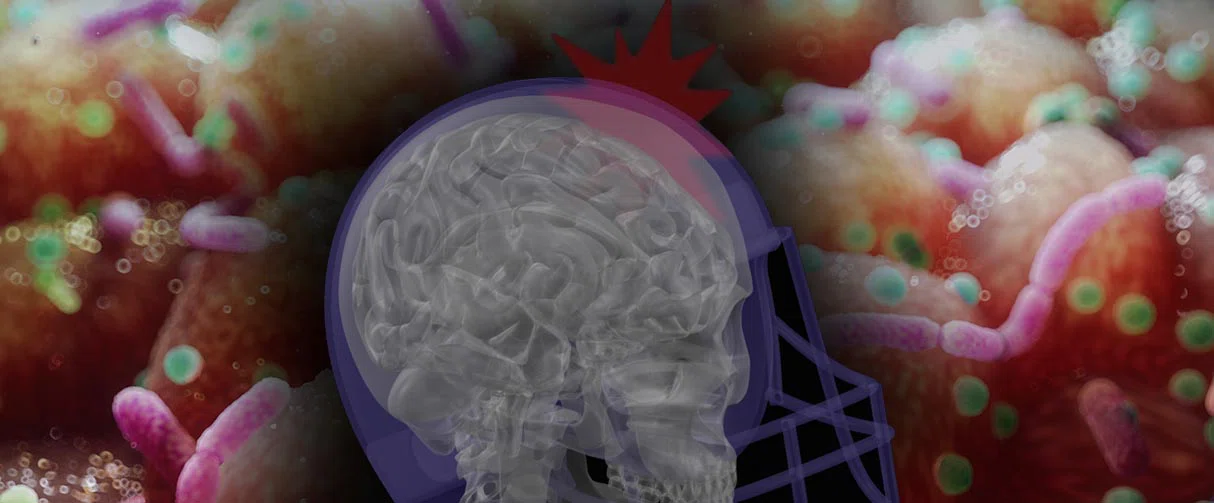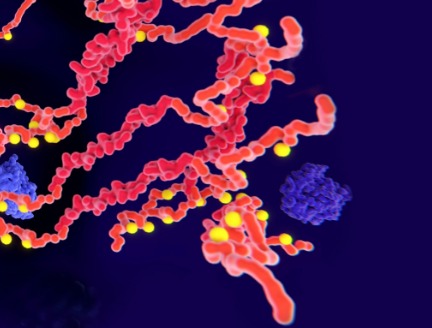


Precision Medicine
Telltale Signs of Traumatic Brain Injury Might Lie in the Gut

A pilot study in Brain, Behavior, & Immunity - Health by Houston Methodist scientists now suggests that telltale signs of concussions might be in the gut.
The research conducted with Division I college football players for one season found that two bacterial species normally found in abundance in stool samples of healthy individuals tend to decrease rapidly in those that have had concussions. Further, there was a correlation between proteins associated with brain injury circulating in the blood and certain bacterial species in the stool.
"Now, potentially, we can say, 'OK, we don't see anything on the neuroimaging, we don't see anything in the blood test, but we found you do have a deficit of this bacteria, which is very important for the immune system recovery, so you should rest until that gets better,” said Sonia Villapol, assistant professor of neurosurgery.
The researchers said the study findings demonstrate that a simple, objective diagnostic test could be developed to track the impact of concussions and signal when it is safe to return to action

Sonia Villapol, PhD
Assistant Professor of Neurosurgery
Houston Methodist

Until your gut microbiome has returned to normal, you haven't recovered. This is why studying the gut is so useful. It doesn't lie. And that is why there is so much interest in using it for diagnostic purposes.
Sonia Villapol, PhD
Assistant Professor of Neurosurgery
Houston Methodist
Concussions can be notoriously difficult to diagnose, particularly if the trauma does not lead to an overt injury that can then be imaged. As a result, the most commonly used test for the diagnosis of concussions relies exclusively on self-reported symptoms, like blurry vision, dizziness, nausea and headaches. To develop more reliable tests, there have been many attempts at identifying brain injury biomarkers. However, commercial blood tests have had limited success at being sensitive enough to detect tiny increases in biomarker concentrations.
The central nervous system is also intimately linked to the enteric system, and head trauma invariably leads to changes in the gut microbiota. After a concussion, the injuries cause inflammation, sending cytokines and metabolites circulating through the blood, which breaches the intestinal barrier and causes changes in the gut, affecting metabolism.
"Dysbiosis occurs when the good bacteria don’t return and thus don't produce the anti-inflammatory antioxidants to help the body get over the trauma, and bad bacteria begin to accumulate, releasing toxins and increasing inflammation, which then circulates back through the blood and brain again," explained Villapol. "The connection is bidirectional, so you can get trapped in a bad feedback loop that is difficult to break out of."
This study was done in collaboration with Rice University investigators from the Departments Computer Science and Athletics. In addition, Villapol collaborated with Kenneth Podell, neuropsychologist and director of Houston Methodist’s Concussion Center.
Soriano S, Curry K, Sadrameli SS, Wang Q, Nute M, Reeves E, Kabir R, Wiese J, Criswell A, Schodrof S, Britz GW, Gadhia R, Podell K, Treangen T, Villapol S. Alterations to the gut microbiome after sport-related concussion in a collegiate football players cohort: A pilot study. Brain, Behavior, & Immunity – Health. 2022; 100438, ISSN 2666-3546. https://doi.org/10.1016/j.bbih.2022.100438
Eden McCleskey, May 2022
However, these changes in the microbiota, she said, could offer an opportunity to acquire a readout of the ongoing injury to the central nervous system. To investigate the diagnostic potential of the gut for traumatic brain injury, the researchers looked at stool samples from 33 players, four of whom were diagnosed with major concussions.
The team found that Eubacterium rectale and Anaerostipes hadrus species of bacteria levels in concussed players was sharply reduced. Additionally, among players exposed to lesser impacts, a correlation was noted between traumatic brain injury-linked proteins (S100β and SAA) in the blood and the Eubacterium rectale in the stool.
"Until your gut microbiome has returned to normal, you haven't recovered," said Villapol. "This is why studying the gut is so useful. It doesn't lie. And that is why there is so much interest in using it for diagnostic purposes."
The researchers noted that because the study only included four players diagnosed with major concussions, the results will need to be confirmed in a larger sample size. Also, they plan to conduct a similar study soon using women's soccer athletes, who also have frequent head trauma.
"Women and men don't have the same immunities or gut microbiomes, and as a woman and a mother of daughters, I would hate to be that researcher who only looks at men's issues while overlooking women," said Villapol. "Women's soccer players have very high rates of concussions, as well, and all the same problems when it comes to existing diagnostic methods."








